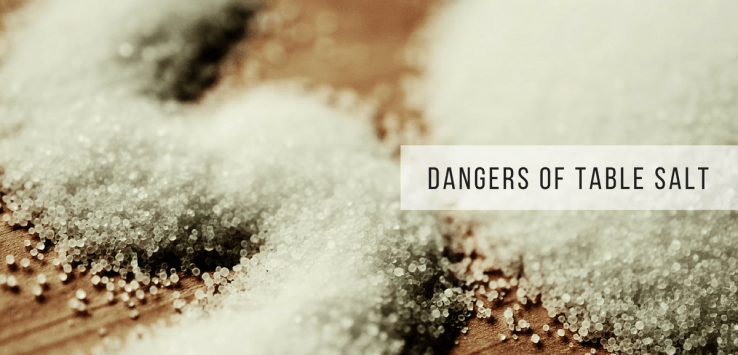- 1Share
Ayurvedic experts advise switching from iodised salt to better alternatives. In this article, we will discuss why. Salt is not just essential for adding taste to food – your body needs salt for crucial things, like blood circulation, water retention, blood glucose levels, thyroid function, and bone density. But did you know that table salt simply imitates the taste of naturally occurring salts? This means that while you get the taste you need from food, your body doesn’t benefit from it. In fact, you expose yourself to some serious risks while eating table salt.
What Is Table Salt, Anyway?
Common salt is a form of sodium chloride that tastes like natural salt. But this kind of salt undergoes pretty heavy processing, during which it loses its nutritive value. That’s not all – the processing also involves adding toxic chemicals to it, like flouride and iodide.
The Dangers
1. Hypertension
First on the list of iodine salt side effects is its effect on the cardiovascular system. This kind of salt contains super high amounts of sodium. And sodium has been found to mess with blood pressure. The kidneys end up working hard to combat the high levels of sodium in the blood and as a result, they get rid of lesser water. Over time, you end up with a much higher chance of developing hypertension. It also puts you at risk of diabetes.
2. Water Retention
When you consume too much sodium, the balance of sodium and potassium in your body gets disturbed. Your kidneys have to work hard to balance its levels. They do this by reducing the amounts of water they excrete, ending up in higher water retention in the body. This leads to swelling in the hands, legs, and face. There is bloating in the body. This excess water retention makes it harder to lose weight.
3. Dehydration
We just talked about water retention. Unhealthy levels of sodium cause your body to contain higher amounts of water. But if you don’t meet your daily requirements of water, this could lead to dehydration. That’s because when your body doesn’t get the water to balance the sodium from your diet, it extracts it from your cells. This could lead to a host of problems like headaches, strokes, weakness, and dizziness. So, please watch your sodium levels – especially in the summers.
4. Fragile Bones
Studies have found that too much sodium puts you at a high risk of osteoporosis. Over time, it decreases the density of bones. That’s because while the body works to get rid of the excess sodium, you also lose a lot of calcium through urine in the process. This leads to weakening of the bones and can be rather dangerous, especially for women.
5. Kidney Damage
Too much table salt is extremely bad for the kidneys. With high sodium levels, they cannot function naturally and undergo a whole lot of strain. This results in high blood pressure, as we already talked about, and accumulation of calcium. Both of them contribute to the development or worsening of kidney diseases. If you are prone to having kidney stones, you’re much better off with a healthier alternative to common salt.
In Conclusion…
Four much healthier options we health experts recommend trying are: sea salt, Himalayan salt, pink salts, and kelp.






Leave a Reply